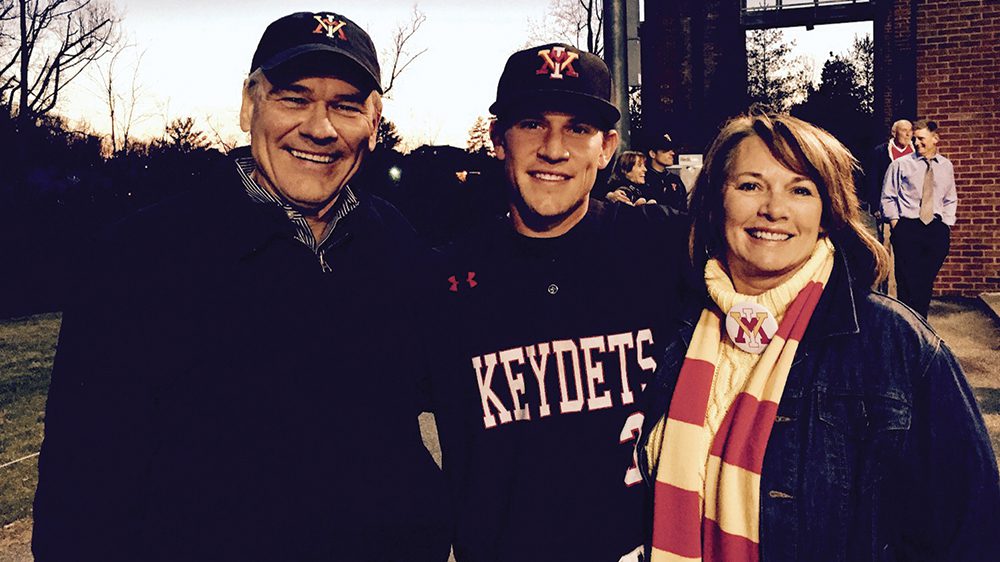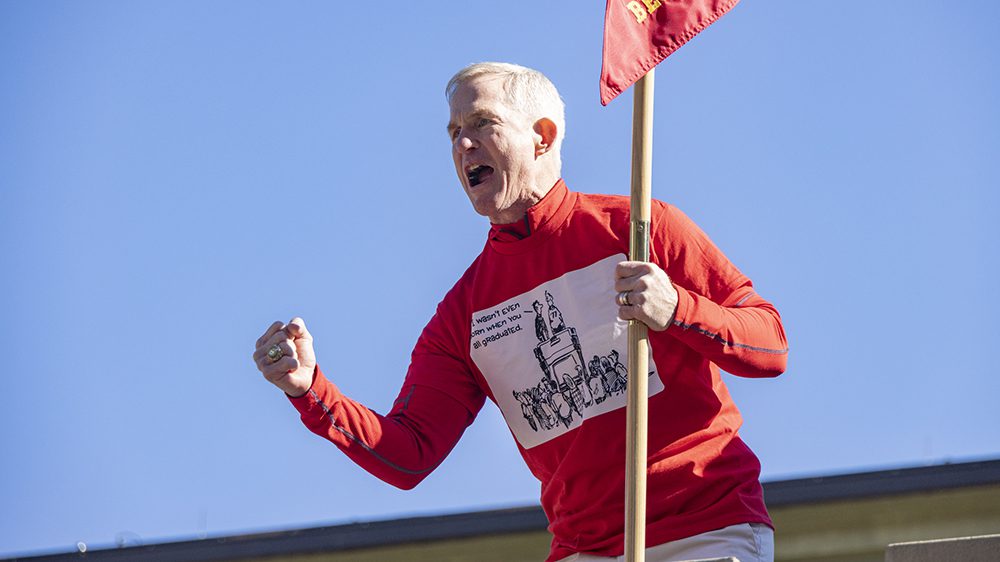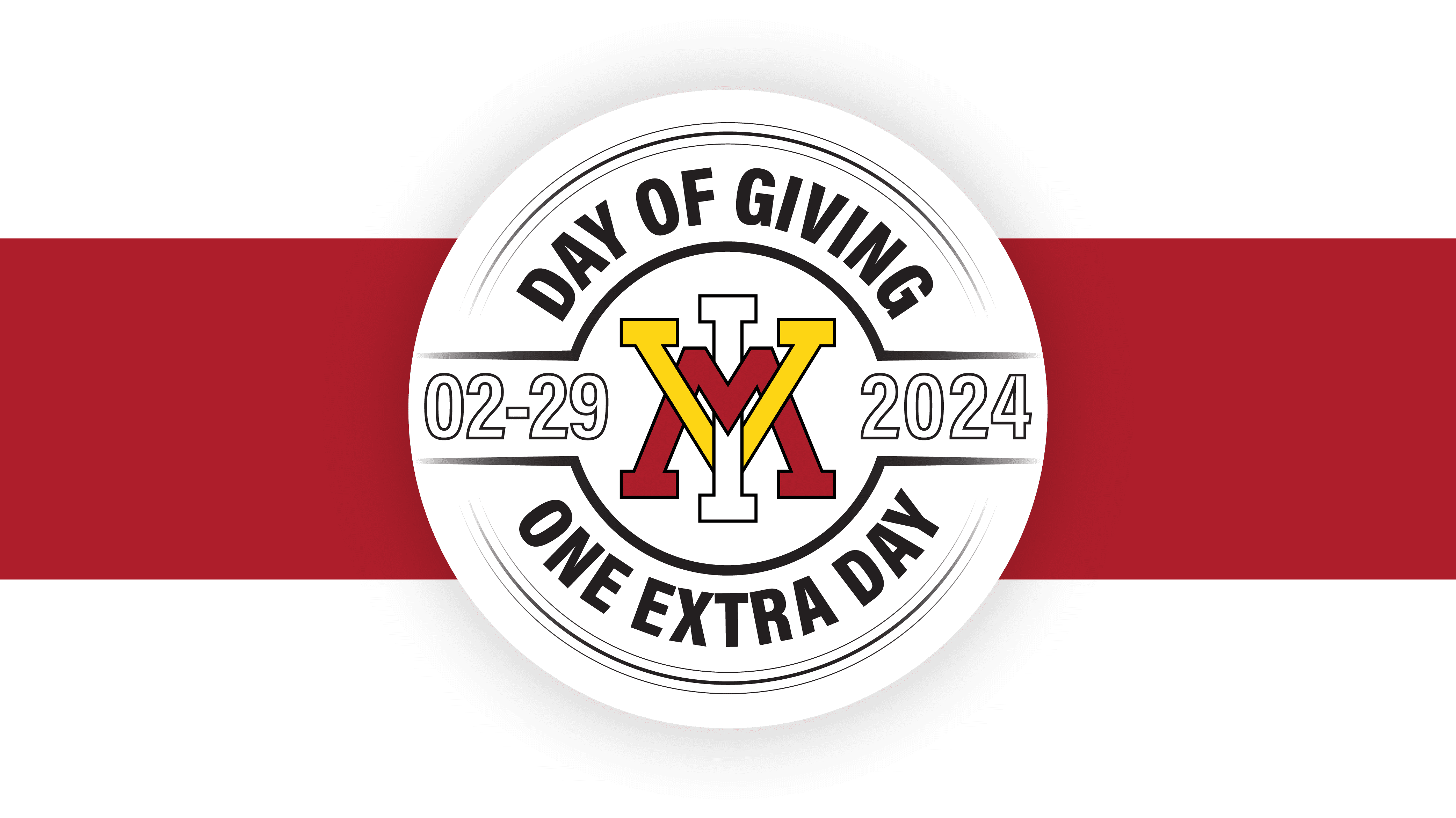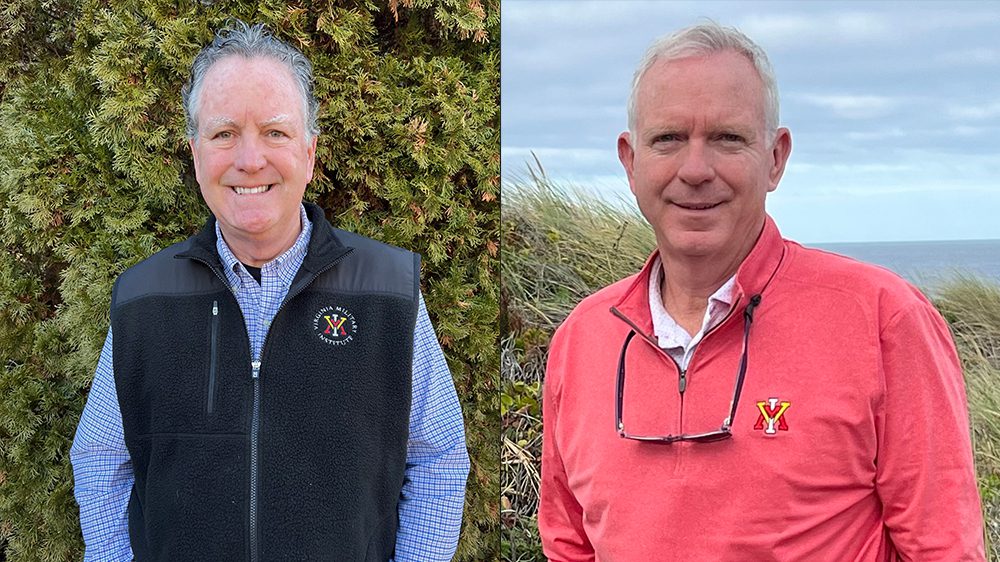The story began in Richmond, Virginia, over 40 years ago.
It continues today, expanding beyond one family and impacting young men at a small college in rural southwest Virginia’s mountains.
It’s the story of Jane Tarsovich and her late husband, Phil. They met in Richmond in the early 1980s through Jane’s brother and mutual friends. They married in 1985. Phil worked in the road paving industry, starting out as a flagger while attending Virginia Commonwealth University. Over time, he worked way to the top of the company, Slurry Pavers, Inc. Throughout his professional life, Phil networked with many VMI alumni in the industry and was continually impressed with their work ethic, character, loyalty, and support of each other.
When their son, Jordan Tarsovich ’14, began his college search, VMI became more personal. Jordan was looking for colleges, hoping to play baseball. Spartan barracks and military duties were not the college experience the teenage Jordan envisioned. His parents, knowing VMI’s good reputation, encouraged him to give the Institute a closer look. He eventually decided to attend VMI and played baseball for the Keydets from 2011-15—the extra year due to a broken ankle his second year playing ball.
Jordan’s baseball career brought immense joy to the family. “[Phil] loved to watch him play. We were at practically every game,” Jane said. They attended about 90% of Jordan’s games, during his VMI career and during summer league. They rented a house in the northeast to watch him play in the invitation-only Cape Cod Baseball League. Jordan played in the Cape Cod League All Stars, which provided him looks from Major League scouts.
Phil and Jane, along with friends and family, followed and supported Jordan throughout VMI and his entire baseball career. While Jordan was building his brotherhood at VMI, his parents bonded and built lifelong relationships with many fellow Keydet baseball fans and families.
Toward the end of his cadetship, Jordan had hopes of the Major Leagues. During the last game of his college career, the Keydets were playing The Citadel. A 90-mile per hour fastball hit Jordan in the shin.
“It laid him out,” his mother recalled. “He could barely walk.” No bones were broken, but the internal injury was much more serious than it looked.
Jordan rode the bus back to VMI, with his parents following behind. By the time everyone got back to VMI, it was evident Jordan’s injury was serious—walking was painful and difficult. The baseball players, on a different schedule than the rest of the Corps, still needed to clean out their barracks rooms and team lockers at the bottom of the hill. Jordan, due to his injury, needed help.
“Everyone on that baseball team just pitched in and helped,” Jane said. That character, helping a friend—a brother—when he needed it most was exactly what the couple had noticed about VMI alumni well before Jordan set foot on the Parade Ground. Bolstered by the team’s effort and spirit, the Tarsoviches drove away from Lexington.
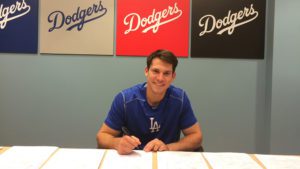
After VMI, Jordan was drafted by the Dodgers. He also played in the Oakland A’s system before returning to the East Coast.
Though he didn’t know it at the time, Jordan’s baseball story was not over. When draft day came, he tuned in. “He was upstairs, still not able to put any pressure on his leg,” Jane said. “I went downstairs for a minute, and all of the sudden, I heard him screaming. I ran back up—and he had been drafted by the Dodgers.”
Jordan spent a few years on the West Coast, playing first in the Dodgers system—including a few games in Dodger Stadium—and then with the Oakland A’s. His parents were enormously proud of him. During the time Jordan played professional ball, Phil would often say, “There’s nothing better than being in the stands, a beer in hand, and watching my son play baseball.”
After about a year with the A’s, the team released Jordan. They offered other opportunities in the system, but Jordan decided to come home.
Meanwhile, back on the East Coast, Phil and Jane were at the beach. One evening, they were relaxing out on the water’s edge. Phil was fishing and Jane was reading. “It was our favorite time of day to be down at the beach,” Jane said.
Phil noticed his arms had been twitching, and he brought it up to Jane. It was strange, so Jane looked up the symptoms. Amyotrophic Lateral Sclerosis, or Lou Gehrig’s disease, was one of the results. They figured it wasn’t ALS—but it was.
ALS is difficult to diagnose. It’s sometimes called “the ruling out disease.” Many boxes have to be checked and many other conditions crossed off the list before doctors make a final diagnosis of ALS.
Between 2016-18, Phil and Jane went to different doctors, even making a couple trips to the Mayo Clinic in Rochester, Minnesota. In May 2018, the last box was checked off, and Phil’s doctors determined he did have ALS. This coincided with Jordan moving back to the East Coast.
Though disappointed about being released from the A’s, Jordan was where he needed to be: Home, with his father.
“I don’t think Jordan could have been away during his father’s illness,” his mother said. “So, things worked out as they should.”
When Jordan moved back to Virginia, he began working at the same company as Phil, with an office across the hall. As ALS gradually stole Phil’s physical abilities, his son was there to help. And for Jordan, as a young professional, if he had questions—the best mentor in the world was right across the hall, ready to answer.
Work was never an imposition for Phil, Jane said. He was good at what he did and enjoyed it. He was highly regarded and trusted in his position and was recognized as an industry leader throughout the country and beyond.
Phil worked up until a few days before his death. As ALS progressed, his days at work shortened and left him exhausted. He insisted on keeping a professional image. The couple would get up early, around 5 a.m., and Jane would help Phil with every step of getting ready for the day. A co-worker would pick him up by 7 a.m. He was devoted to leaving the company in the best possible situation. The disease continued, but so did Phil. He worked as much as possible, coming home earlier and exhausted.
“If it were not for Jordan and the care and concern of the Slurry family, Phil probably couldn’t have continued as long as his did,” Jane said.
A few days before Phil passed away, he went into hospice. There, still fighting the disease, he made the couple’s 34th wedding anniversary special. Phil sent their children out to buy flowers, 34 long-stemmed roses for Jane. “We had a little celebration,” she remembered. “I brought our wedding album and a few other family photos; all three kids were there, and we laughed and reminisced. We made a toast—Phil with his Woodford, us with Champagne.”
Their anniversary was June 8, and Phil passed away June 11, 2019. “He was a good man. He’s missed terribly,” Jane said, emphasizing “good.”
